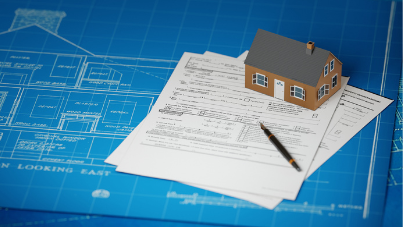As I walk the path of buying and selling buildings with my clients the issue of Building Regulations arises regularly.
When is Building Regulation Approval necessary?
Building Control’s approval will usually be required if you wish to:
- construct a new building;
- alter an existing building;
- alter the heating or sanitary installations; or
- make changes to the use of a building, even if construction work is not required.
And what are the consequences of not getting approval?
If works are carried out in breach of building regulations, one or more of the following may happen:
- The local authority may take enforcement action under Section 36 of the Building Act 1984, which is the most common action taken. Building Control may serve a “section 36 notice” requiring rectification of works which do not comply with building regulations within 28 days. If the building owner does not comply, Building Control can carry out the works themselves and recover the cost from the owner of the property. The section 36 notice must be served within 12 months of the breach.
- In addition, or instead of serving a section 36 notice, Building Control can also apply for an injunction to require work to cease or to compel the building owner to undertake specified works to rectify a breach. Because the costs associated with the application process are so high, injunctions tend to be reserved only for the most serious or extreme breaches, for example where a building is dangerous to occupants or neighbours. An injunction can be sought at any time after the carrying out of the works if they are deemed to be dangerous.
- Alternatively, Building Control can take action in the magistrates’ court, and would typically do so against the builder rather than the building owner. These actions tend to be reserved for deliberate or wilful breaches and are not very common. A fine will usually be levied against the builder.
So what is the position for a seller where he or she cannot demonstrate compliance with building regulations?
If approval was not obtained it may be that the works were carried out in breach of the building regulations. This could mean that the building is dangerous and/or it could have a significant impact on value or future saleability.
Further, there is the risk of Building Control taking enforcement action if the breach is within the timescales outlined; it is also worth remembering that technically there is no time limit on Building Control applying for an injunction.
The upshot of this is that buyers’ solicitors cannot simply disregard historic non-compliance with building regulations, no matter how many years have passed since the works were undertaken. It is good practice for a buyer to check that all works carried out to a building were in accordance with building regulations. A buyer of a property where works were carried out without approval may require the seller to:
- remedy the works and obtain a regularisation certificate prior to completion;
- reduce the price to reflect the cost of the works of rectification; or
- obtain indemnity insurance against the risk of enforcement action.
If a seller is not able to provide evidence of approval, he or she may apply for a “regularisation certificate“.
The works will be assessed against the standards subsisting at the time the works were carried out, not at the time of the inspection. The local authority will charge a fee for carrying out the inspection and may require plans of the works and for the property owner to open up parts of the property if the works have been covered up.
If these works had been carried out satisfactorily, then a regularisation certificate will be issued; if not, the local authority will specify the works which need to be carried out. However, it should be borne in mind that a regularisation certificate is not conclusive evidence that the requirements of the building regulations have been complied with. Compliance at the time the works were carried out is always preferable.
It may be possible to obtain indemnity insurance to protect against the risk of enforcement where works were carried out without approval. However, such a policy is not a substitute for getting approval and an application for a regularisation certificate may invalidate the policy by alerting the local authority to the potential breach.
It is important therefore for building regulations compliance to be thought about when preparing to market a property. If works have been carried out a prudent solicitor will want to see evidence of compliance. Failure to have this to hand is likely to result in delays.
